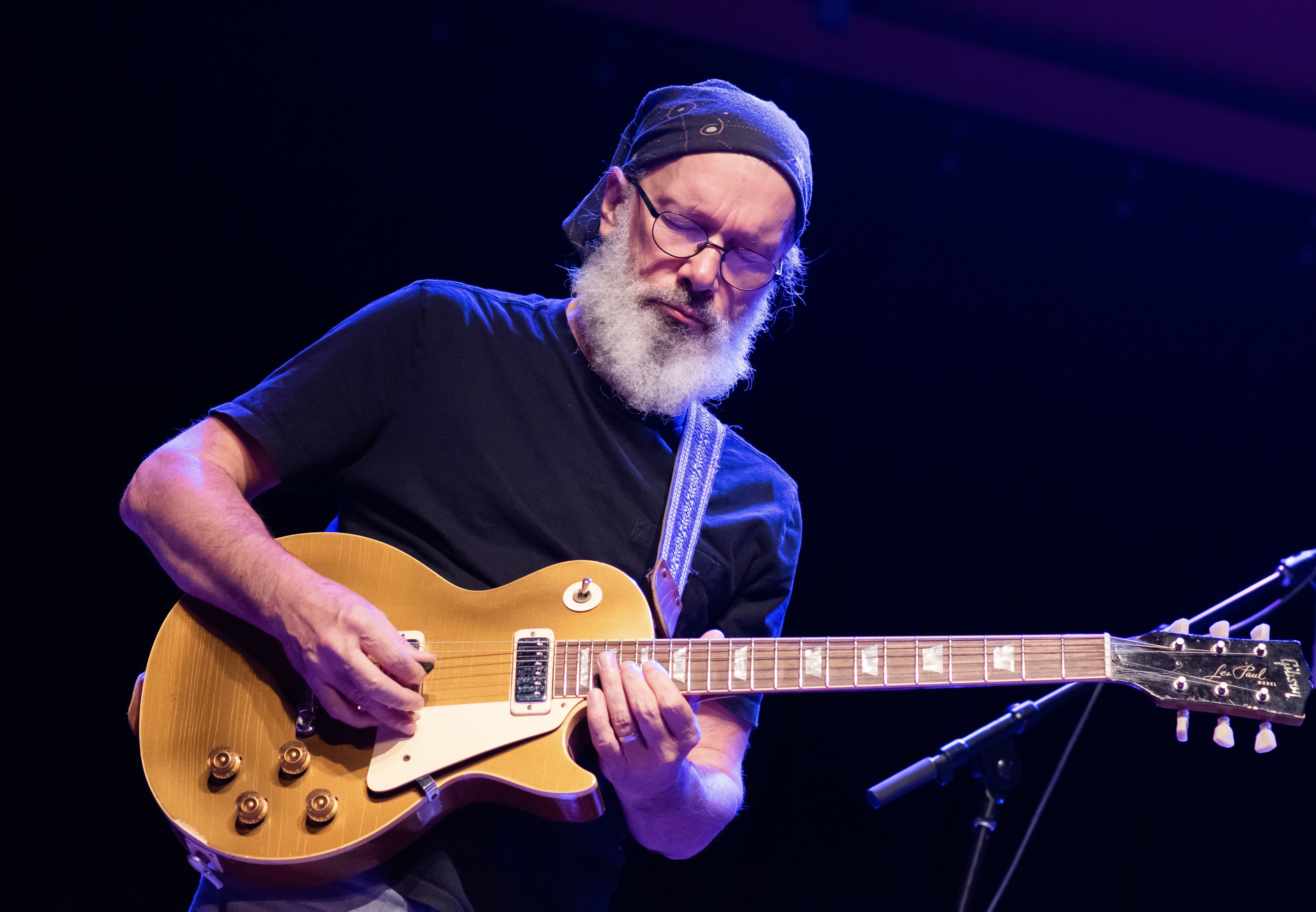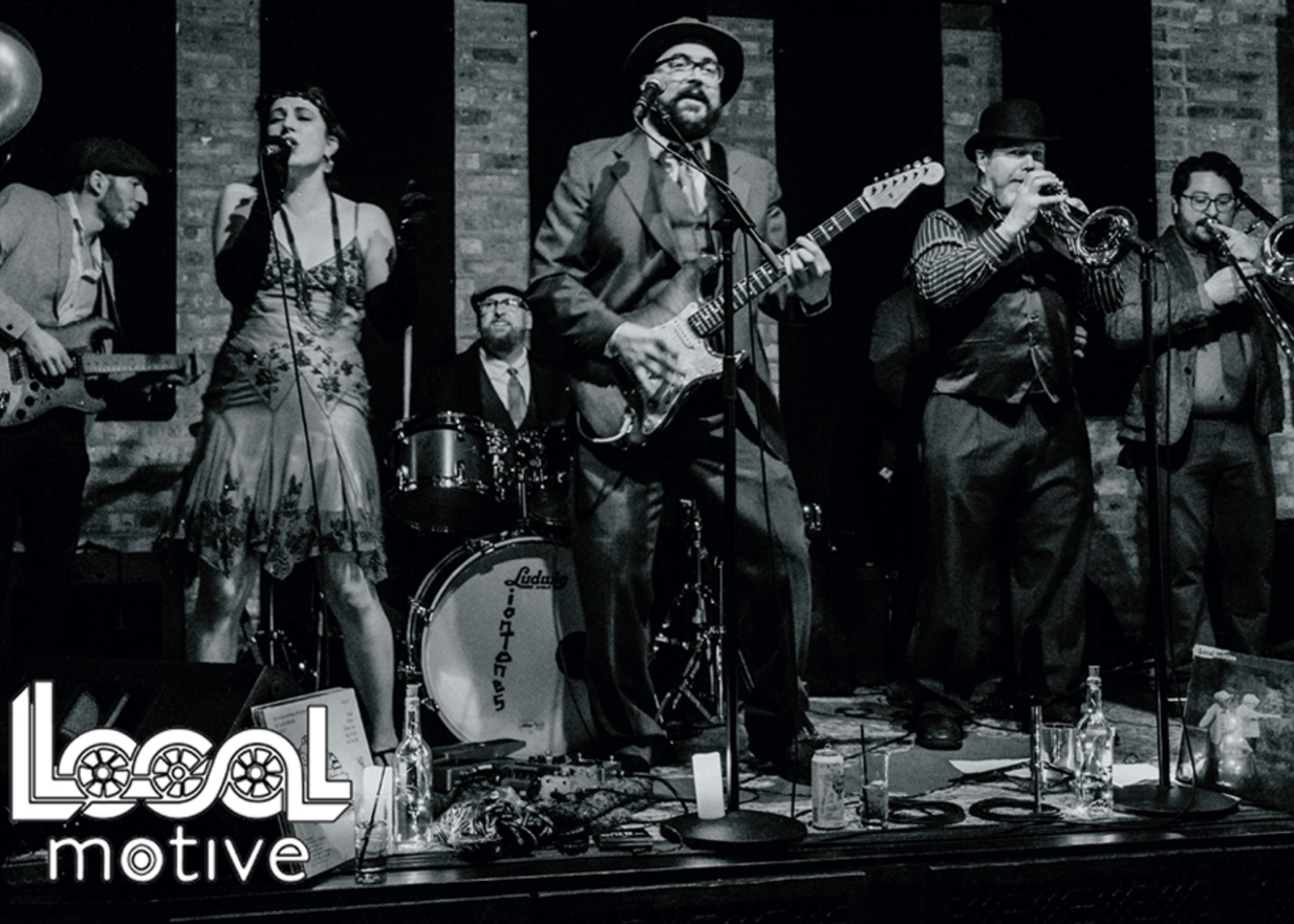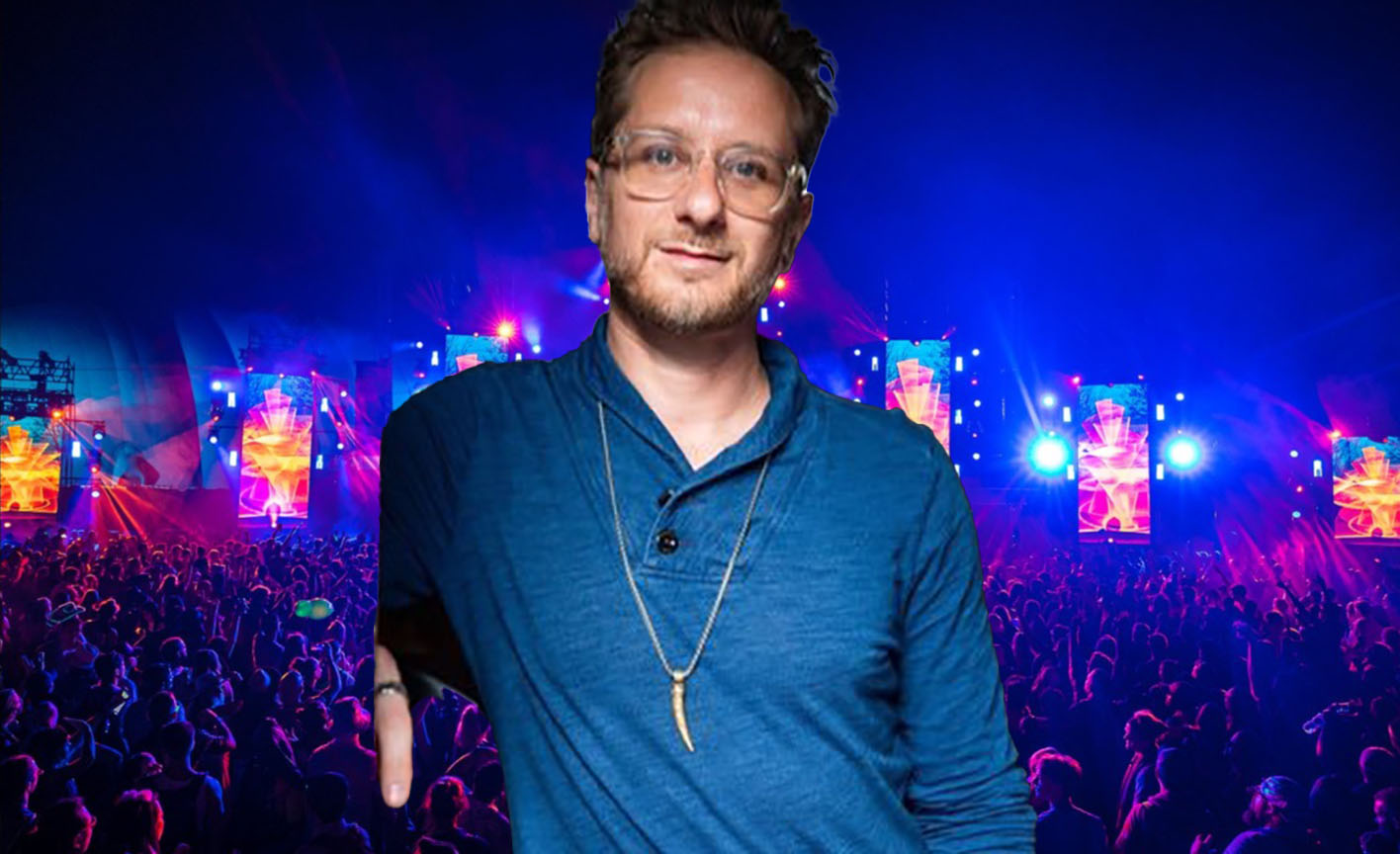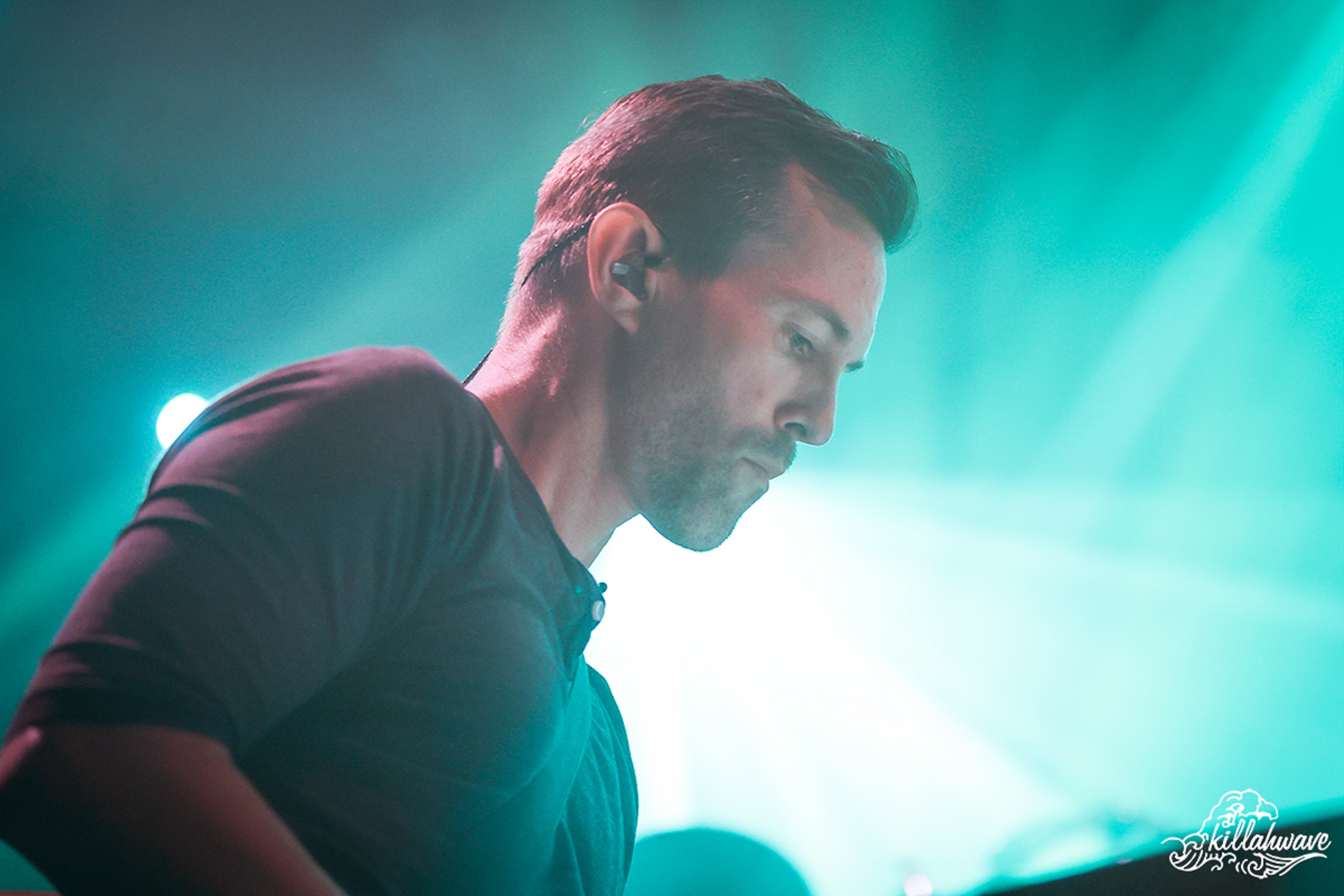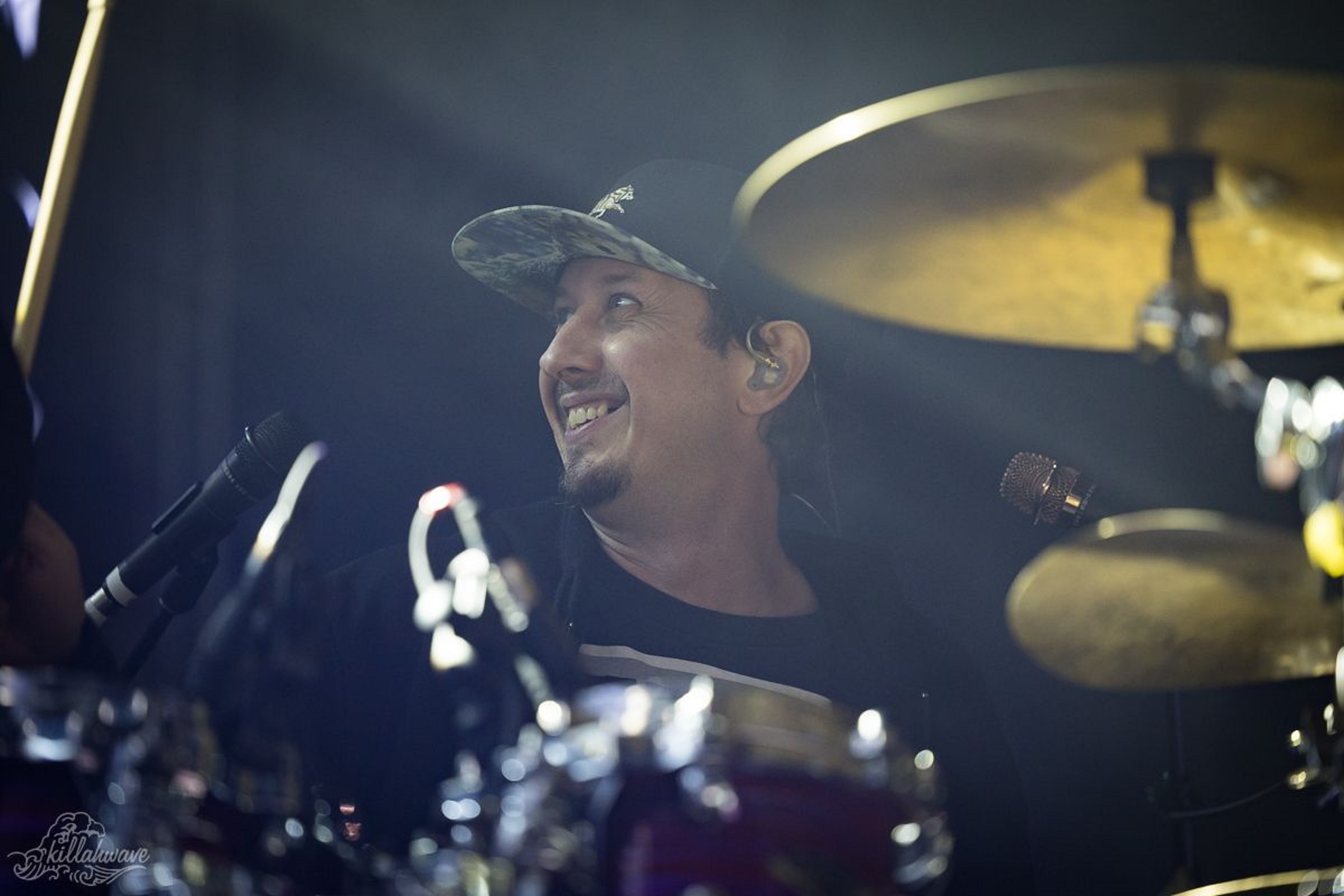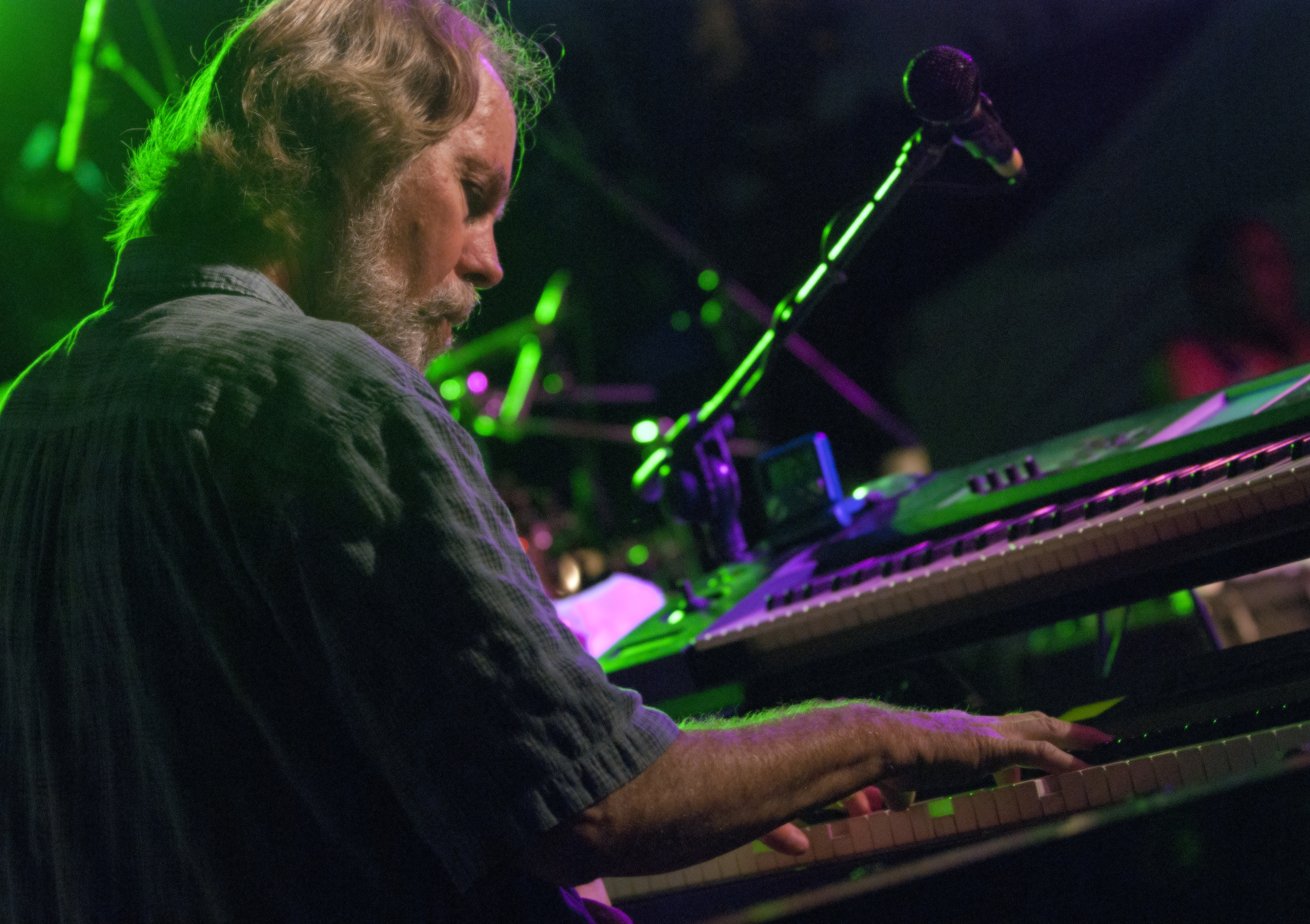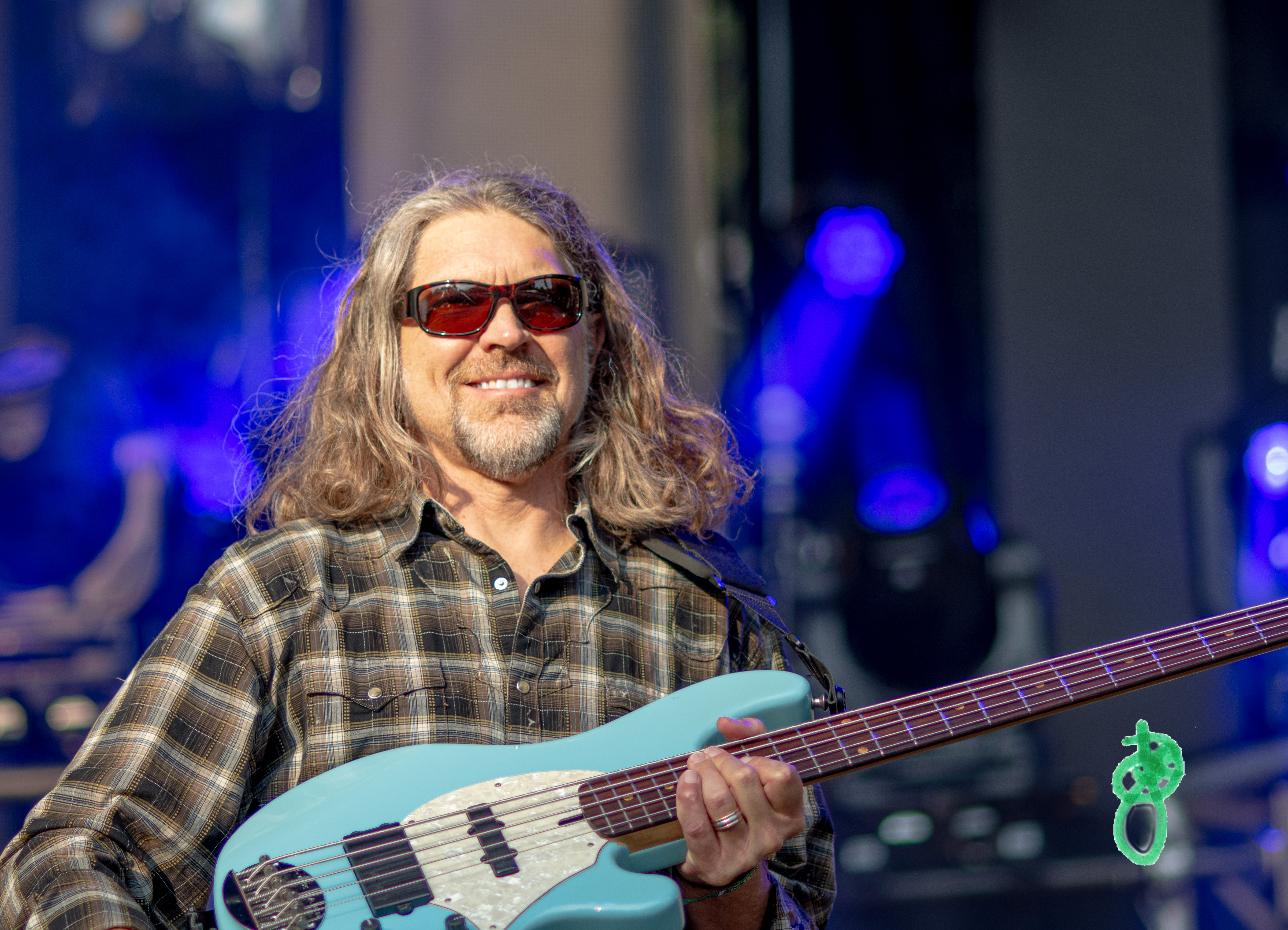Steve Kimock is a very dynamic person who has a lot of things to say and a lot of cool background and stories, so it's really fun to be able to pick that stuff out of Steve Kimock's brain. To have a conversation with him was really candid and real fun. I really appreciate everybody who was involved. Thanks again to Mark, June, Dennis, and Steve Kimock for helping us out here today to make WZRD's airwaves a little more special. It's WZRD Chicago 88.3 FM the Wizard, Chicago's home for Freeform radio since 1974.
Nothing like talking to an artist who you have followed for years who is just so humble, so hardworking, and just really selfless in the sense of not looking for fame or money or women or any of those things that sometimes rock stars are looking for. Steve Kimock is someone who can play, who can improvise, and continues to make that hard work part of why he does it. I've got the Zero record sitting here ready to be spun. This is called Here Goes Nothing, that's the record, and the tune we're going to hear is called Straitjackets. It's here on WZRD Chicago, 88.3 FM. Special thanks to Grateful Web for making this happen!
MP: You are listening to WZRD, Chicago, 88.3 FM, The Wizard. Chicago's home for Freeform Radio since 1974 and I have on the line Steve Kimock, how are you doing, Steve?
Steve Kimock: I'm good. Are we over our technical hurdle?
MP: We are. You know, things sometimes are not always easy, but we made it work.
Steve Kimock: No, I just got a new iPad and I got it so I could use this slow down your program for music. And as soon as I fired it up, it just sort of flashed it, didn't it? Oh yeah. What could possibly go wrong, right?
MP: I mean, it's a brand new iPod. I meant to say iPad. I'm dating myself here. But yeah, did you get to figure it out?
Steve Kimock: I think so. See, I needed a fourteen-year-old!
MP: Totally. I was thinking the same thing. I'm like, Who can I call here? But you know what? It was just a couple of buttons that were not pressed. So we are pressed, we are ready, and we're so excited that you are coming to Chicago, Steve Kimock and friends. Tell us a little bit about this lineup and what you plan to do here in Chicago for us.
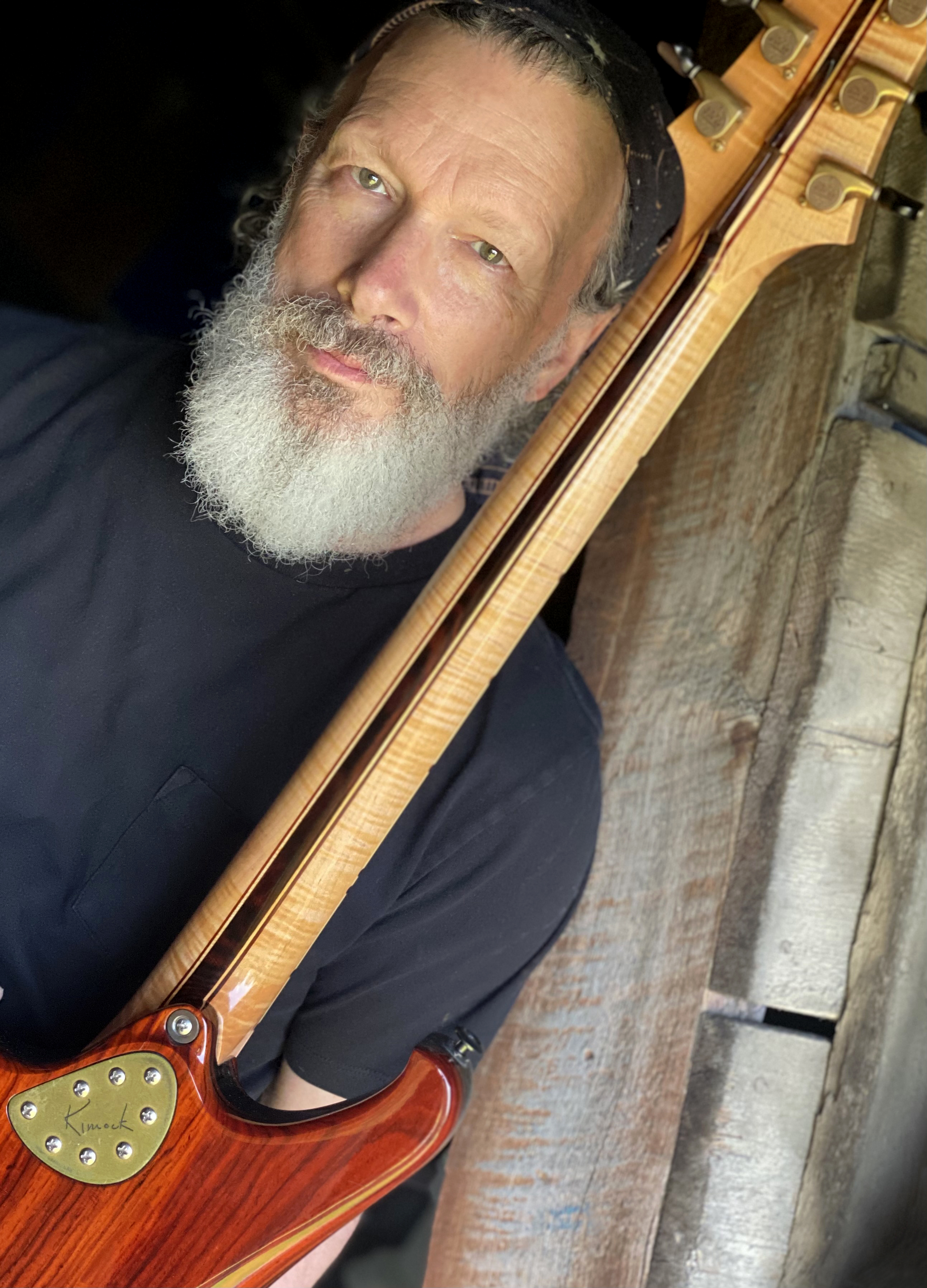
Steve Kimock: Oh, well, we intend to go slightly nuts because for the three days preceding will be supporting Hot Tuna. So opening up for Hot Tuna, for the beginning of the week. So it'll be, playing shorter sets and more contained. And so by the time we get to Chicago and it's our own show, we'll be chomping at the bit to have our own show.
MP: That's awesome.
Steve Kimock: For four of the two sets and the whole thing, anyway, it's me and my son, John, on the drums. Who, I still don't understand how it worked out this way, but he's the best drummer I've ever played with. And he's my son. He's so good.
MP: That's amazing.
Steve Kimock: That's like a giant... You know, I don't... I can't... I still can't process what a blessing that is for the firstborn to be that into music and to be that good because he just literally kicks my butt every night. So good. Anyway, so Johnny's on drums, my dearest oldest friend, Bill Goodman, a vocalist, songwriter, slide guitarist who I went from Pennsylvania to California with the Goodman Brothers Band back in the 70s. He's on the gig.
MP: Oh, wow.
Steve Kimock: I couldn't get more trust or support from any two people right there. So that's two guitars and drums. And there's a bass player, as you would imagine. Kenny Aaronson, a veteran of just too many famous acts to even mention, although I like to mention the Yardbirds because that's where all the good guitar players came from across the pond. Was Peter Green in the Yardbirds? He was for a minute. Anyway, we normally think of it as Eric Clapton, Jeff Beck, but anyway and our own here in Pennsylvania, a good friend and local treasure, Mike Barofsky on Keys and Vocal. So that's the entire routine unless because in Chicago, somebody comes in and sits in, you never know.
MP: Exactly. That's the best part about doing a friend show and just putting people together.
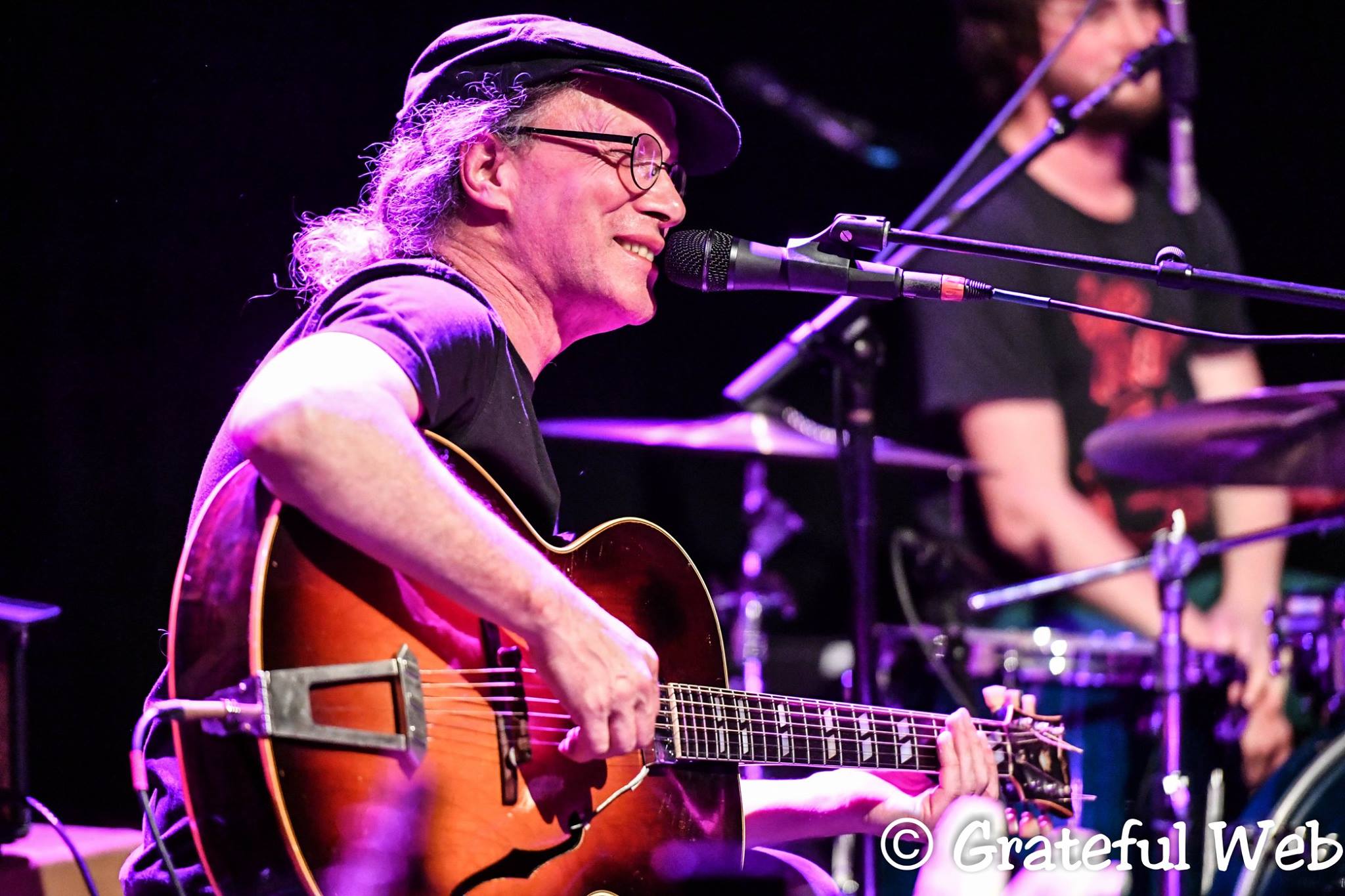
Steve Kimock: Yeah. Yeah. It's the best part about doing a friends show in an actual city.
MP: Yeah, an actual city.
Steve Kimock: As opposed to some hamlet tucked back in the hills, which has its own charms. But it's not like you're going to expect it. Hey, there's this great tenor player in town...
MP: Right?
Steve Kimock: And that works in Chicago. It doesn't work in lots of other places.
MP: That's awesome. Thank you for sharing it. We're excited. And I mean, the Goodman Brothers, that's kind of what you went from Pennsylvania to San Francisco for the beginning, right?
Steve Kimock: Yeah. Exactly. That was the Hot Tuna connection, because that was our first gig in California, though, it's a good match with we've had to announce anyway, so that was fun.
MP: That's great. That's really cool to hear that it's all kind of coming back. And yeah, Chicago is this music town where things can just collaborate and function in a different way than every other place. So I'm excited for you to get to come off of the Hot Tuna tour and come here because you're going to have that energy in that that real feel of like, let's play our own music and I'm excited to be there for that.
Steve Kimock: Are you going to make it to the show? I hope so.
MP: I'm really trying to. I got to work until about 9:30, but I'm going to try to rush it over there as soon as I can.
Steve Kimock: No, you should. You should, I think. Which is the venue?
MP: This is a City Winery in Chicago here.
Steve Kimock: City Winery, right? Yeah. No, I have played there with Hot Tuna at some point, played there with with with Jerry Joseph too, while the Dead did their Fare Thee Well shows.
MP: Oh yeah, you're right. I think I saw your show there, actually, now that I think about it.
Steve Kimock: I've been there. I remember that show specifically for the storytelling. There was some great storytelling that night.
MP: Yes, absolutely. Totally.
Steve Kimock: I think.
MP: I think you did like an early show and a late show.
Steve Kimock: It's sort of a lost art for the rock and roll thing. But all of the earlier acoustic musicians, folk and blues musicians maybe not so much bluegrass, but a lot of folk inclusions, there is lots of storytelling. Maybe half the night was music, and the rest of the night was like anecdotes.
MP: Yeah, which being an audience member, it's really nice.
Steve Kimock: Yeah, it's entertaining and it's rough for me because some nights it comes naturally to speak to the people, and then some nights it's really difficult. And I think I finally figured it out after 60 years. It's just the lights are right in my eyes and I can't see the people and I can't talk to them, I talk into the light and go, you know? I can talk to you because it's on a phone. If there was a light in my eyes right now...
MP: It would be harder.
Steve Kimock: Yeah, I'd be like, I'm not saying anything!
MP: So what do you do in those situations? Do you ask the lighting guy to cut back or you just don't talk?
Steve Kimock: Well, I squint and try and get it together. Sometimes you can't do anything about it, you know? I mean, they're there literally rooms. I don't know if you're ever on stage, but there are rooms you go on stage and you see the crowd and you go, Yeah, and there are rooms you get on stage and you don't see anything. It's really weird.
MP: And it's got to be hard.
Steve Kimock: That's difficult to make a connection under those circumstances.
MP: Yeah, it's like, OK, I'm speaking to the light, and I hope you guys understand, but you can't see me. Exactly. I love it.
Steve Kimock: Yeah, you can't really stare into the spotlight and go, "But first, a joke!"
MP: Yeah, right? 'Well, nobody's laughing because I can't see them, are they mad or are they happy?' Well, of course, you're connected with the Grateful Dead. You've been in multiple bands that have been around the Dead, the Other Ones, and different facets. What really got you into it or what was your first peek into that life?
Steve Kimock: Oh, I was taking care of a friend's house in Lagunitas, California, back in the late 70s. And I got a phone call. I didn't even know how he found my number. This was not like cell phone time, you know? But the phone rings and I pick it up. I am house sitting and a lady on the other end, 'Is this Steve Kimock?' And I said, Yeah. 'Kimock, like the guitar player?' I'm like, Yeah, who's this? Donna Godcheaux. And I was like, No, it's not and I was like, I'm convinced that it was, you know, some of my friends pranking me with some crap, and I was not amused. And so I kind of chewed her out. And then she goes, No, really! Will you come and play? And I guess this was right after they got out of the Grateful Dead for reasons that I will not get into. But they bailed or were shown the door, or however, that work was done and they were right away playing with people that I knew: John Chipolina, George Molina was playing. And I was like, Yeah, I'm coming! So anyway, that was the first and it wasn't too long after that I got that weird call. That was the early 80s and then just, I mean, I was in town, and just kind of like a new guy in town staying. And it's hard to explain what a small community that was and at the same time, how many musicians and how fertile a musical community it was. It's just north of San Francisco in the 70s when everybody was there, Ali Akbar Khan for crying out loud, great, you know, Indian classical music, great jazz musicians Joe Pass was picking up trash on the side of the highway. It was, it was like everybody there was a musician, a little record store in town, a little tiny town. It was Fairfax, California. It was where I lived. It was Van Morrison's mom and dad who owned the record store. It was like that.
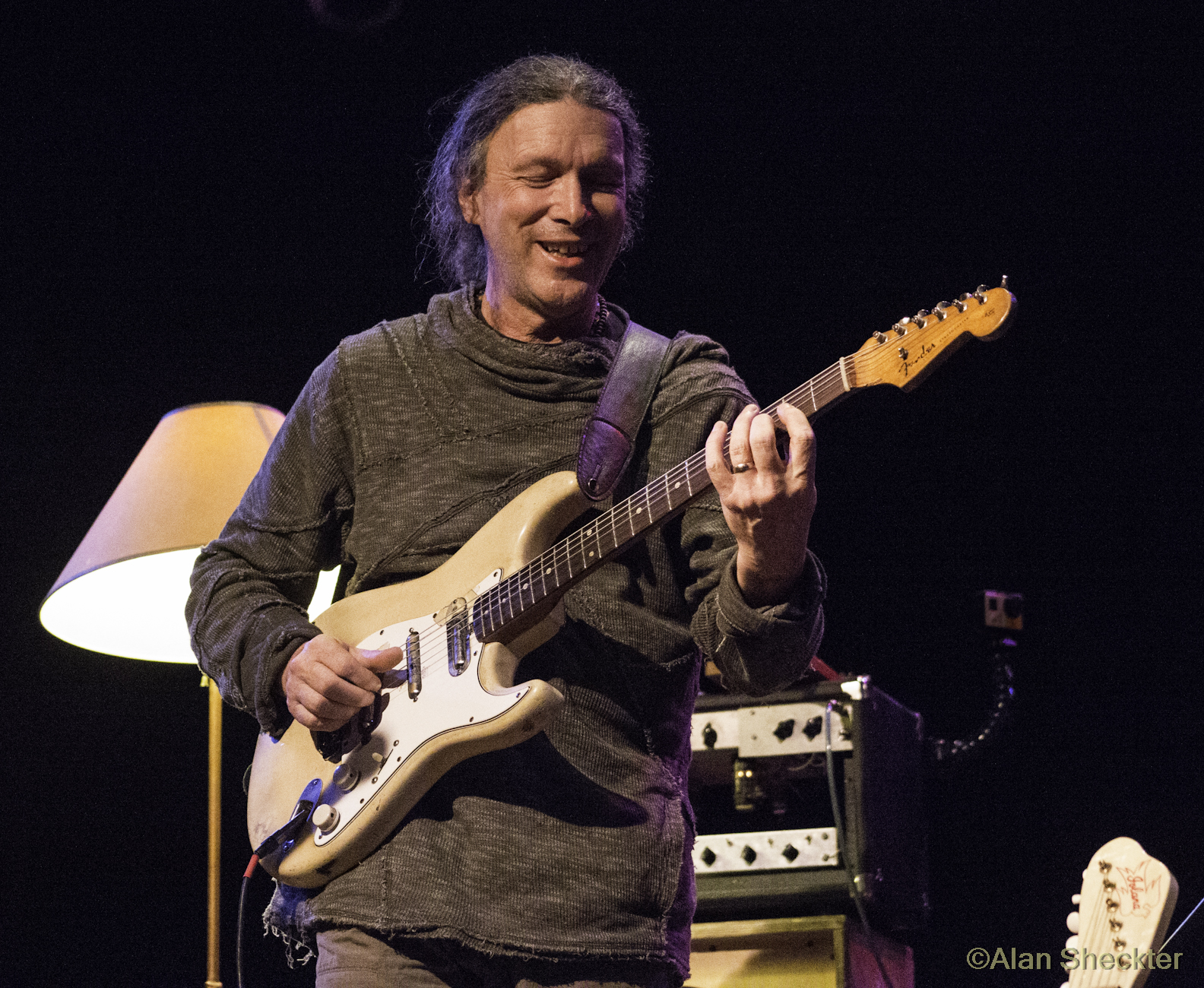
MP: That's amazing!
Steve Kimock: Phil Lesh would pick me up hitchhiking. It was like, everybody was right there. So it wasn't like I was some kid who came from Texas to New York City. It was just impossibly large and it would take years to kind of get into. I landed and met everybody almost instantly. It was kind of crazy, all the crew, the people and the guys in the band, and so forth.
MP: Wow.
Steve Kimock: But anyway, that's where it started. It was circumstance. It was just a very close-knit community. And I happened to wander into it at the right time and I was young enough to be crazy enough on the instrument that attracted some attention.
MP: Yeah, that's wonderful, thank you for painting that picture. I mean, Joe Pass on the side of the highway and Van Morrison's parents! Nobody's ever given me that kind of intimate details of everybody was just there and I knew that. But I didn't know how intimate and how connected it was.
Steve Kimock: It was a small town. You would see these guys at the deli. You'd see Jerry Garcia coming out of the little breakfast place and stuff like that.
MP: Yeah, I love that. So obviously, the community itself has resonated with you all these years, and I'm sure that part of the way you play and what you do echoes that community. What is it about the Grateful Dead community that's worthwhile and worth spanning time?
Steve Kimock: That's kind of a trick question. I don't want to answer this in a way that ruffles anybody's feathers, but those are opposite sides of different glass. Gathering and community and fellowship is its own thing apart from the Grateful Dead. People gather for lots of reasons. Most of them are good. I like to keep it that way. And it's kind of rough for me because I'm a musician, and so I didn't get the whole gathering thing at all. At first, as I was growing up, coming from a little steel town in Pennsylvania and then the Goodman brothers. I remember the first time somebody said something about a band having a vibe or a room having a vibe or a crowd having a vibe. I was like, What's the vibe? Do you know? What does it mean for there to be a feeling associated here? I had no idea! So it took me a while to appreciate what was going on on the other side of the glass and then what I figured out, I was like, Oh, good grief! The gig is actually 99% social! The part where my nose is to the grindstone kind of gets me in the door once in a while. But that's not what it's about. It really actually is about the people and the fellowship and the dancing around the fire thing that we all have been doing for a million years. That's what it's about. No. Again, because I'm a musician, the Grateful Dead thing to me is about the music and how did they do their thing right? That's a different thing, and that's a really specific thing that's Jerry's songwriting with Robert Hunter and stuff like that, where that's coming from. It's a production that they had mounted over the years and the innovations that they created. Both with technical stuff and how they did business. So. Yeah, both those things are worth talking about. But yeah, the Grateful Dead to me is about what those guys did specifically, apart from the parking lot.
MP: Absolutely. And I think, even outside of the parking lot, it's this mentality to a lot of us, in my generation, maybe aren't as religious, maybe more secular. And it's like, Oh! There is this vibe or thing happening that you can still feel community and have people lean on your shoulder or lean on theirs and be able to have that feeling that you may not have because you're not part of a church or a community kind of thing in your town. So I feel that is resonating and that is, still as strong as it was 50 years ago, and beyond that.
Steve Kimock: Oh yeah, no. It's as strong as ever because people genuinely need that, you know? I mean, that's why there is stuff like church. That's why there are tribes. That's why there are families. On some level, we get to pick our own, pick our own spots for that, and we always did. That it's apart and all about it makes me happy. It's just like knowing how far back this whole routine goes because it's getting the kids to bed and then dancing around the fire a little right? All that jazz. That goes all the way back, right?
MP: Really far back.
Steve Kimock: It's funny, too, because just as a human activity, you know... When I'm out there in Montana or whatever Utah or something like that, you get to sit down with some of these guys and all they do is work with horses and stuff like that. And you're like, Oh, yeah, your job goes way back too. It's like that.
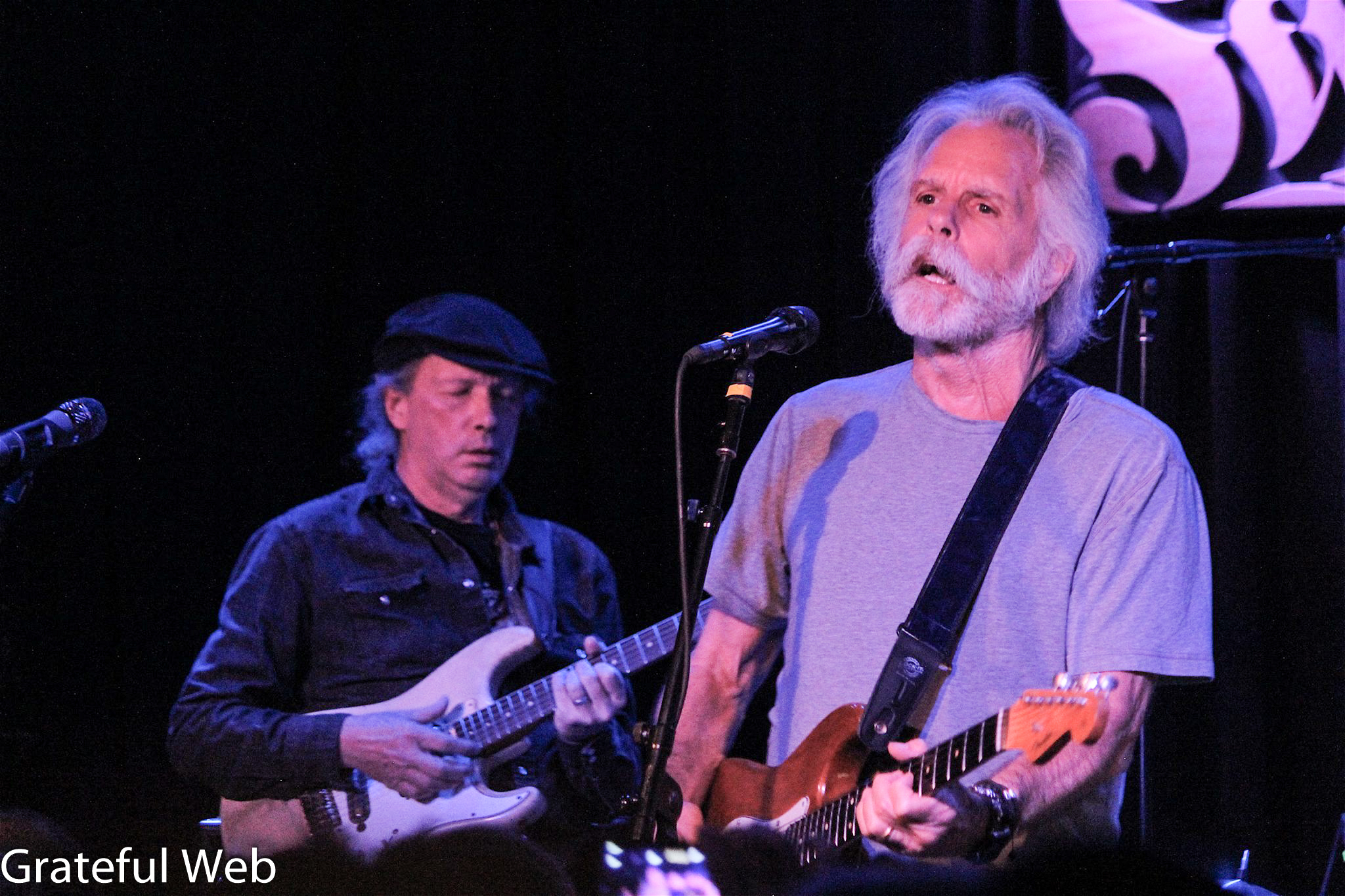
MP: Totally, thanks for expanding on that. I appreciate that. I want to know about young Kimock. When you were a kid, who was inspiring you in your tribe and your family to get into music or to pursue it?
Steve Kimock: Obviously, it's the people closest to you, you know? I think my mom said, you should play an instrument!
MP: Give you something to do?
Steve Kimock: Well, yeah! I think that she saw that I was otherwise attracted to looking at the world as things that I could light on fire and things that I could not light on fire, going around the universe with a pack of matches. She said, 'Do something else.' So I said, I want to play the violin. And she says, go across the street from Grandma's house to Paychecks house. The Paycheck's kid just got a violin. So I was like 12 or something like that, so I walked across the street and I could see through the screen door, I could see like the fender amp, I remember to this day a fender amp up on a chair, then like one coil cord going one way and one coil cord going the other way. The guy had electric violin and he was on the phone and he says, I got a new electric violin! You should hear this! The amplifier pointed right at my head, hit the violin and I went, screaming back to my Grandma's house in tears. It was so loud. So. I immediately went to the guitar because I knew it couldn't be possibly as loud as the violin. My Aunt Dottie was a folk singer, she got me into it and my cousin Kenny actually played electric guitar. Back then, he had a gold top Les Paul, I have that Les Paul still. It's coming with me to Chicago, it's my favorite guitar. I'm playing the guitar that was my cousin's guitar that got me into it. So that's gone full circle. But it was people closest to me, family, that got me into it. And then it was the people who I was closest to in those formative years, like Billy Goodman, for example, who's also on the gig along with my cousin Kenny's Les Paul, all those people are the biggest influences, really. People will say, who did you listen to when you were a kid? Oh, Black Sabbath! I was a huge Sabbath fan as a child. You know, but honestly, as big an influence as somebody like Eric Clapton might have been Cream was a big deal when I was a kid. That's not a bigger influence on me than my cousin, Kenny. He was a direct influence, as you know, as a hero. As much as as as I enjoyed all the rest of this stuff that I was listening to, whatever it was, Allman Brothers, Santana, none of it was as personal as what came from family or close friends.
MP: That's really awesome, that's cool to hear. And it's cool that you equate both of those things just as important, something like Black Sabbath and your cousin Kenny could be just as important to your journey into how you got there. Yeah, it has to do with that tribe.
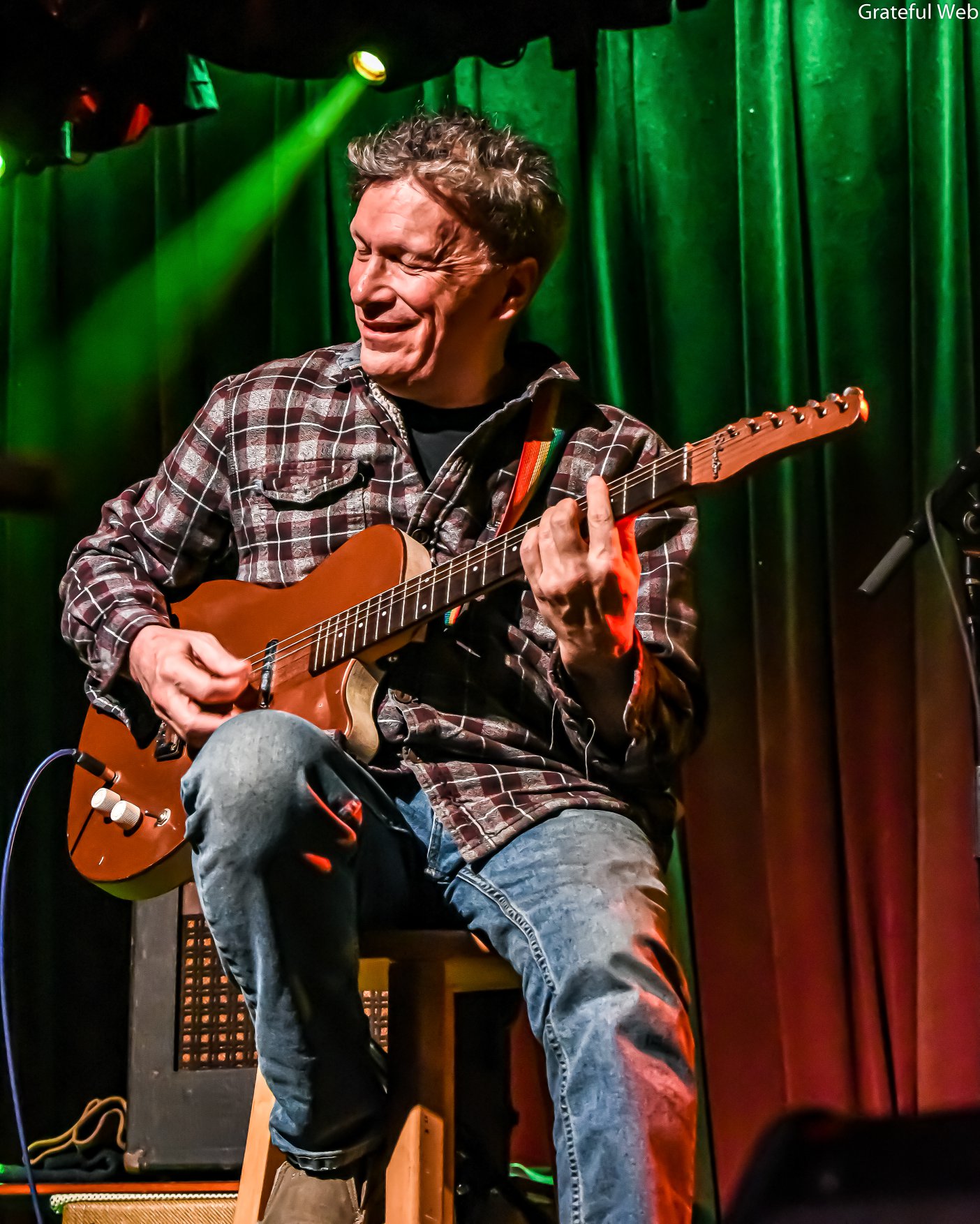
Steve Kimock: I think a lot of times when that... Because I mean, that's a standard musical question. It's like, Well, what were you listening to, right? And there are people that are enormously influential just because they're musical giants. You know, obviously, I'm influenced by John Coltrane. You know, obviously, influenced by Bach, you know? Yeah, I mean, it's a big question. Yeah, there are great musicians, you know, Ali Akbar Khan or my friend Debbie Bhattacharya. Of course, I'm influenced by those people, but the closer they are to you, the bigger influence they're going to have, in more profound ways.
MP: Absolutely. And I feel like, with your son, well with all your kids, I've heard that you've just supported them in whatever it is that they're interested in and not try to push anything, just support. And I think that, like you just said, it's probably a big deal that his father is so into music and really just enjoys it and isn't in it for the commercial or the corporate vibe, is just there to play because it feels good.
Steve Kimock: Now the youngest, who is 14 has come to me every day going, Hey, show me something, show me something, show me something! We're playing some blues and trying to work on the little beginnings of some Allman Brothers stuff. It feels really good. Hopefully, we'll just keep, I don't even know if, hopefully, is the right word. I'm just happy to have gotten to the point in a musical life where I feel like I'm passing along stuff to the next generation because I think that's the gig in a larger sense. Do your best to assimilate what's what so that you can learn from what you can listen to and Pass It On.
MP: Absolutely, and you do it in such a humble way in which you're like, Hey, you don't have to do this at all! I'm here for you if you want and I'll support you in whatever you do. That's really cool that it's come around full circle from family to another generation of the family.
Steve Kimock: Yay!
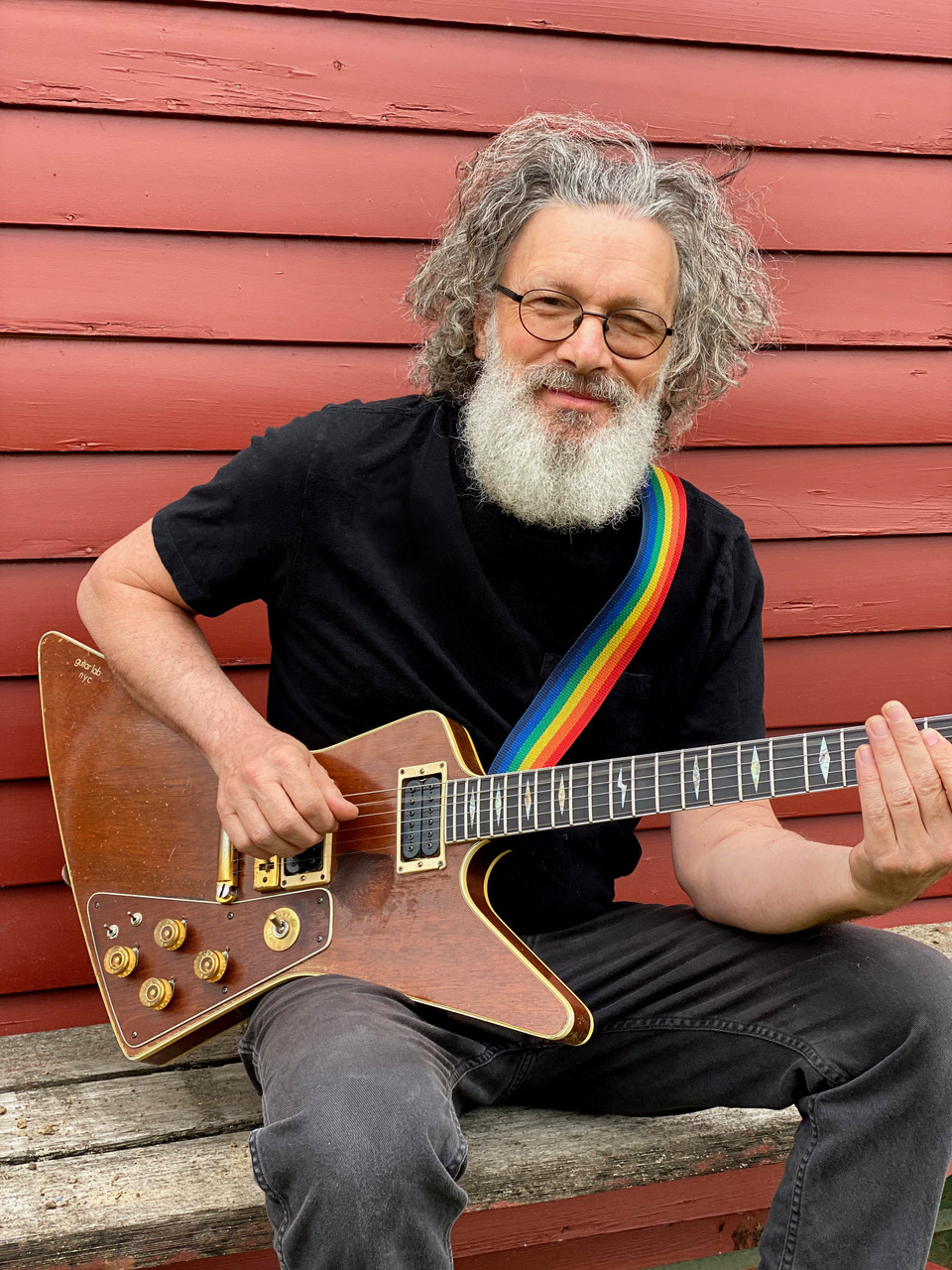
MP: Yeah! That gave me goosebumps thinking of the youngest one coming, Hey, dad, show me this! Inside, you're like, I'm honored, but I don't want to be too excited. Yeah, cool! Let's do this! It's very cool.
Steve Kimock: Right? Well, it's in the proper context in between Marvel movies or Angry Birds...
MP: Normal kid stuff.
Steve Kimock: Yeah, there's still normal kids stuff there. My normal kid stuff evaporated really quickly around maybe 16, and I was like, I'm just going to play the guitar. I don't care if I have to live in the gutter, So I did! I lived in the gutter and played guitar for about 40 years before I made any money.
MP: I love it! So is it all boys that you have or how many kids do you have?
Steve Kimock: Oh yes. Four. It's four boys.
MP: Wow, that's awesome. That's very cool. I actually just found on our shelves, WZRD Chicago has been here since 1974, a Zero record, Here Goes Nothing.
BIG LAUGH
MP: It's probably from when it came out. I know! Isn't that funny?! I love it. I was like, I bet we have some, some Kimock or Zero in here. And sure enough, we did so and Relix Records, which I didn't even know was a label at that time. Very, very cool. 1987, looking at all the pictures of you guys, just totally different time.
Steve Kimock: My goodness, it was such a different time!
MP: Such a different time! But that's coming back a little bit, right? Aren't you going to do something with Zero coming up in February?
Steve Kimock: Yeah, I hope so. We never actually know what's going on. We just did a gig and we're working on some more. I know that. And from the Great American Music Hall sessions, we have a whole other batch of material that's ready to be released shortly. I'm very excited about it because there are so many great musicians in that band at the time on that project who are no longer with us, who were dear friends of mine and I miss him. Anyway, Martin Fierro is on saxophone, chief among them.
MP: Yeah
Steve Kimock: There's so much great Martin on this new record. Nicky Hopkins is on it and John Kohn and Judge who was our singer the entire time. It's just like so many great players and people, so close to my heart, and I miss them. There they are on the record. So we keep that all alive in our memory.
MP: That's the way to do it. It's really cool that this project was going on for so many years and it's coming back or that you're keeping it fresh and doing new things. According to Facebook, I think you've got a show at the Fillmore coming up in February 2022.
Steve Kimock: That's correct.
MP: Cool. That's very cool.
Steve Kimock: Yeah. Are you coming to this? Come on, get up. Get in the car.
MP: Hey, it's time for me to get back out there. It's been a while. Maybe I will. Thanks for the invite!
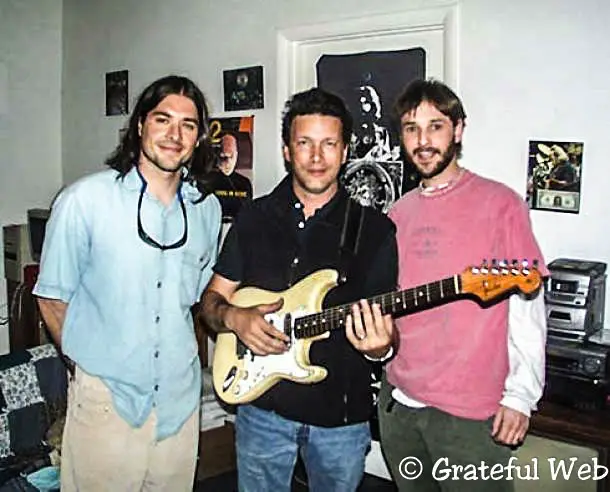
Steve Kimock: Oh, you know, speaking of getting back, I will not hesitate to remind you that there's no... You can't go back. That stuff was a time and you can't go back in time. There's stuff happening now, I don't know where it is, but it's not, it's not where it was. It moved on.
MP: Yeah, it's different now, but it's out of the same vein or the same idea, but totally different, totally revamped, and a totally different place. It's not the same place, that's for sure.
Steve Kimock: I don't like it, but there was a before time - before the virus, before the pandemic, right? There was a scene all over the world, there was entertainment. Bands and musicians and gigs and crew and venues and everybody- agents, everybody that was doing everything - and then everything folded up for long enough for people to wander off. Now, we get to see the extent to which there was tremendous interconnectedness and interdependence and a chaotic result. There's no way that things were going to reassemble in the fashion that they were. And so now that things are starting to get back together... The bad news is that unless you were really at the top of the thing, the very top bands are still the very top bands, but everything underneath - all the venues, the promoters, everything is just like trying to figure out where it's going to be again. The upside to that is it gets to be new. We get to all have a new relationship to the scene and to each other. Let's do a good job of it, is what I'm saying. Do a good job with our music. Do a good job with our community because we have an opportunity now post-pandemic to renew that, to make it new.
MP: Yeah.
Steve Kimock: Yeah. Let's do this. Let's do that just out of respect for each other, for our elders, for our kids, for the music. All that jazz.
MP: Yeah, totally.
Steve Kimock: Yeah, we're doing a good job.
MP: We are. A year and a half ago, we probably were not sure what this would look like. So now we should just use it and take it and make it new and fresh and exciting and pave the way for the next generation of musicians and audiences combined. Exactly. That's really cool. I like that
Steve Kimock: As much as there's always been work to do. We really do have extra work. We have extra work we need to do right now.
MP: Totally.
Steve Kimock: And yeah, that's the responsibility that is thrust upon us by the times we live in. Yeah, you're part of that too. A big part of it. And all the people that are listening, you know, if you can get out to to see music or play music yourself or... Things are a little screwy. Let's make it nice.
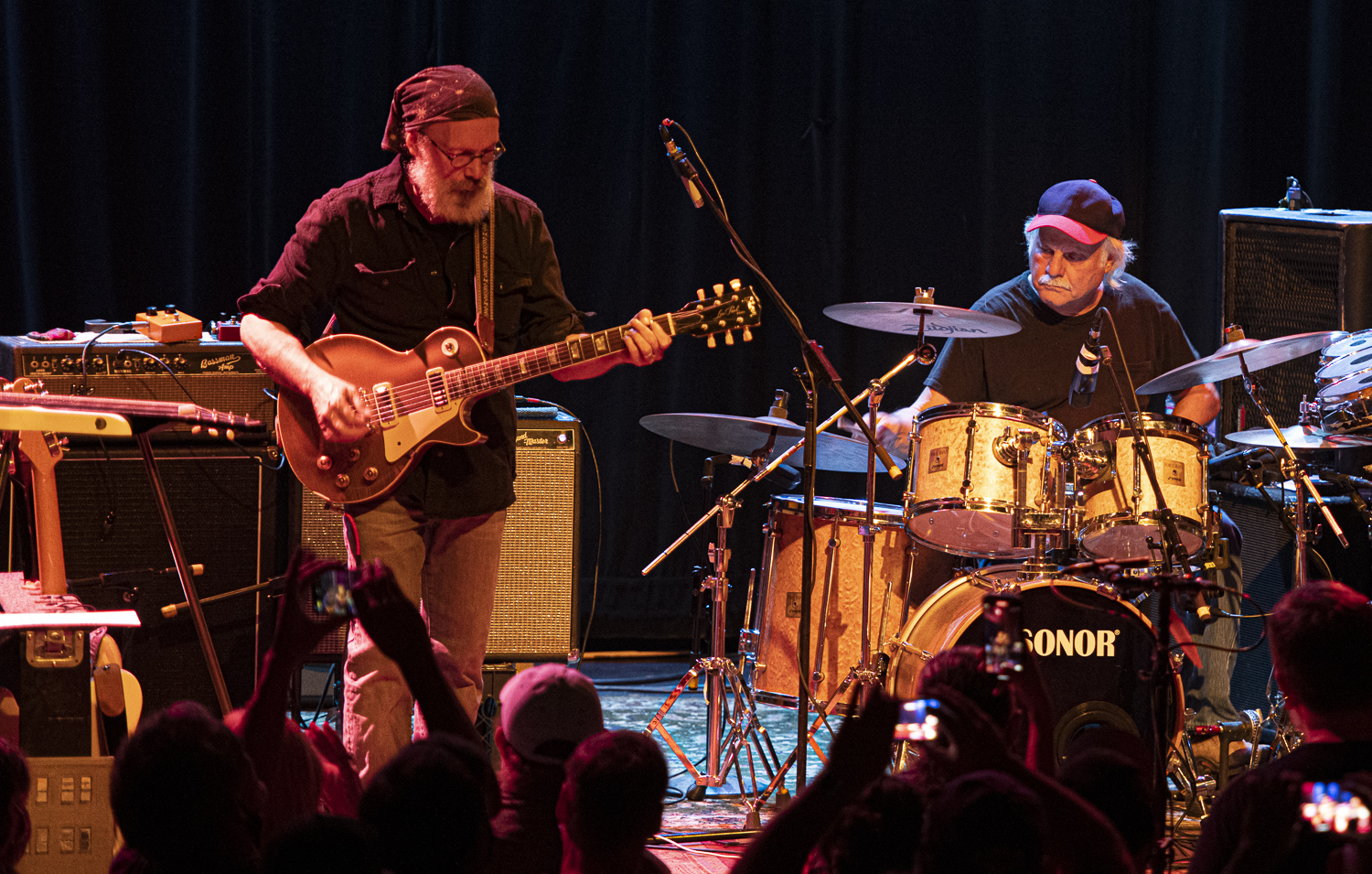
MP: Yeah, let's make it resonate throughout and change the perspective of what the current time is. The more music, the more community, the freer we feel because I think a lot of us have felt so trapped for a while. This is a great way to break back out into this.
Steve Kimock: Exactly right!
MP: Post-pandemic or later. Pandemic world, however, we want to put it. You know, I was playing a tune Tongue In Groove before you called, and someone from one of the Zero groups here on Facebook was saying that that jam or that that actually came out of a zero jam session with John Kahn?
Steve Kimock: Sure.
MP: Tell me about that. If you know the story or if this is correct. Sometimes I bring this stuff up and the artist is like, What are you talking about?!
Steve Kimock: We had a place where we rehearsed out on this ranch, we had this barn out in the hills in West Marin by Samuel P. Taylor State Park. There was a horse barn for the cavalry. It looked like the Our Gang Clubhouses, it was a lot of fun. As you said people were going there to play, John Kahn was over and he wanted to play, Sexual Healing. So he starts playing those changes, right? And then he got to the bridge.
MP: The Marvin Gaye's Sexual Healing bridge is what you're talking about?
Steve Kimock: Yeah, that part was cool. Then the second part of that, da da da da, then I was like, Oh, this is kind of cool. But the first part of those chord changes they're the same changes to Beast of Burden or Talk to the Lawyer, fairly stark changes. I thought, oh, wait a minute, let's keep this part, but I'll treat it like a Linley kind of a tune. The next B part then that we came up with, I think, was some kind of riff on another David Linley thing but to see, for me, so. You know, John Kahn riffing on Sexual Healing and me not liking it.
MP: I love it! Then it morphed and morphed into that!
Steve Kimock: Period of war, and I wrote another melody for it and made some other stuff. That's where it started. That's not atypical, really. Everything starts with something else, something that you heard or something that you like, but you're going to move it around a little bit.
MP: Yeah. So it's not necessarily copying if you start there and you just try to use that to get to somewhere else and to find your path.
Steve Kimock: Oh!
MP: I mean, I guess it depends on the...
Steve Kimock: I don't know. That's a good question. I mean, I have no aversion to imitation or mimicry, or just simply doing it like that, playing the piece as written, whatever it is, I think it's OK. I think it's OK to start there and make it your own. I don't think it's possible to start entirely from scratch. Even the folks that are sort of like Harry Partch or you know, microtonal. Microtonal is an American composer who invented his own musical system. They created these instruments to play and everything like that, even that was a reaction to existing music.
MP: Oh, that's that's cool, that's a great way to put it.
Steve Kimock: Even the more modern composing of a timeline in a computer and stuff like that, it's still... I don't think anybody can distance themselves from their performative listening or to the audience's expectation that, the cultural expectation for music. We think certain things are in tune are pleasant or dissonant. Just basic concepts like that, constants and dissonance, tuning, stuff like that, those are all just constructs and we can't escape them. If we try to, then that's still where we start from. I'm using the same 12 notes, right? Everybody else does pretty much the same three chords, you know?
MP: Yeah.
Steve Kimock: Everybody does their own way. That's that. I'll put it to you this way, music, I think, is a succession of feeling states. You hear it and you resonate with it in a certain way. It plays on your emotions in time and that's that. It's just how we hear and how we feel, how we perceive that part. It doesn't require a specific origin from the art or any similarity or difference. It's just it's your emotional state relative to the resonances that you had at the time, you know, it's you.
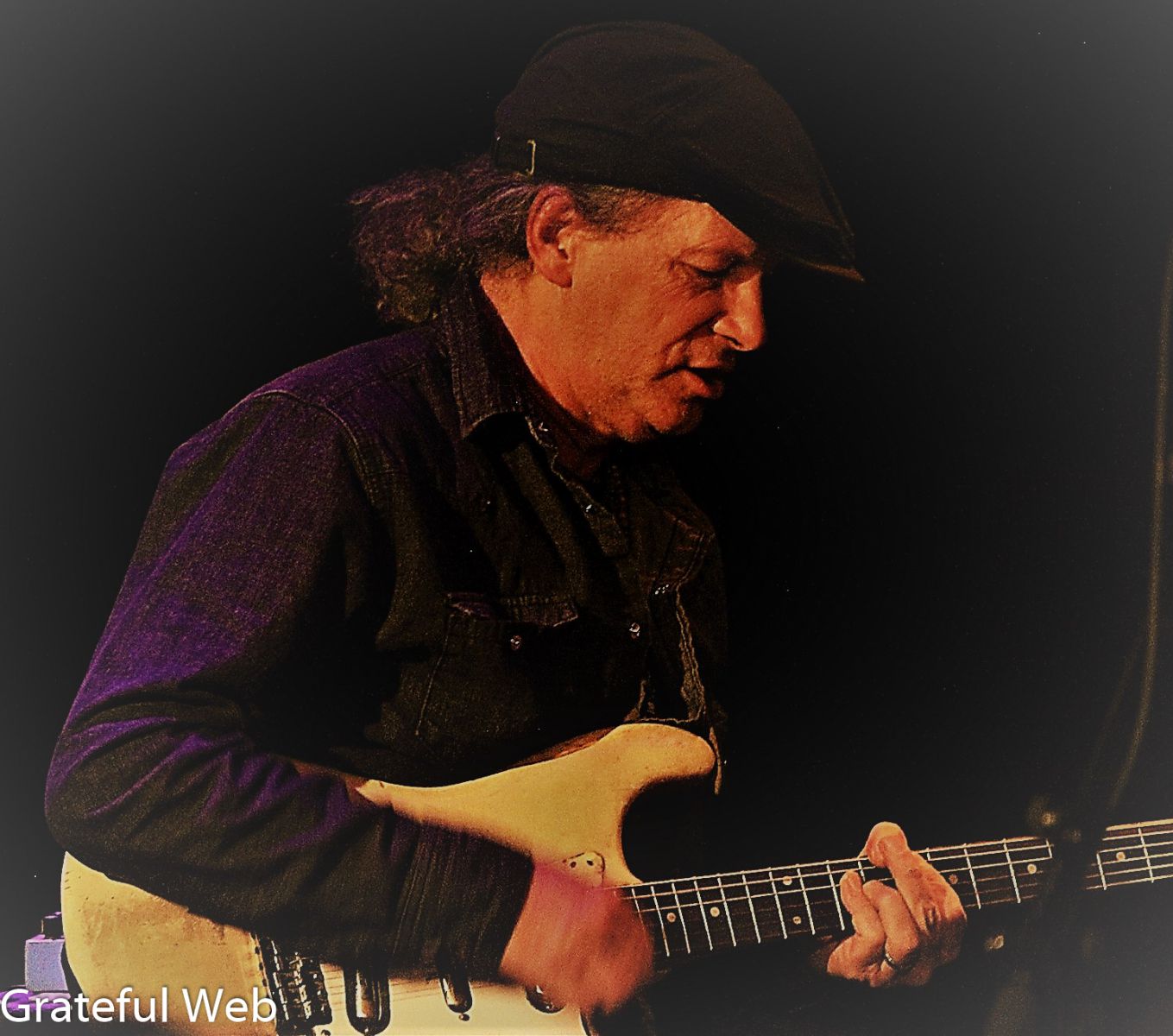
MP: Yeah, absolutely. How you react to that or how you feel. A question I had for you - when you're figuring something out on guitar, you're kind of stuck or you're having trouble figuring something out or just can't get that sound right?
Steve Kimock: BIG LAUGH
MP: Which I'm not saying you specifically! Everybody gets in those...
Steve Kimock: Oh, yeah!
MP: Yeah, you know?! Like it's just kind of at a standstill on, like, what the heck am I doing?! Does that resonate in your life sometimes? Do you feel that when you figure something out on the guitar, then you can figure out something you've been battling in your personal life?
Steve Kimock: Oh, that's a good question! I never connected those two things! Oh, I finished this song. Now I don't feel bad about this thing that happened to me. I think they're all different. There's a great Brian Wilson, Beachport, there's a thing, actually, I think is on a TV on one of the specials where he's trying to figure something out on the piano. He just wants one little change, one little voice leading one little part like just one word. And it just needs a chord and he can't get it. He just goes berserk on the keyboards in place, like utter, cacophony, nonsense, crazy stuff for like five minutes, and then stops and he plays the right chord. It's like, get all the rest of the possibilities out of his system. So when you get stuck, that's one thing that you can do. I've done that. But mostly, I think the answer is whether it's in your life or in the music, my own approach to it is that I just practice, with no sense of reward. I don't require that I get anything from it. I simply have to do the work.
MP: Right.
Steve Kimock: If there's something there, then great! If there's nothing there, then proceed with no thought of reward and that I'm supposed to get something from it. I'm supposed to do it. If I get something from it, then that's a gift, thank you. I don't get it without working for it, so I can't stop working.
MP: Yeah, that is a good way to look at it. That is something I've thought about with playing for so long and being able to... you get stuck. You can't beat yourself up every time. I like the way you say, if I get something from it and I feel good, it's a gift. If not, then there's nothing...
Steve Kimock: Oh, yeah! That's the thing! People think that I'm going to do this, and then I get this, and it's like, No!
MP: You're expecting the reward. So then you're not going to get the reward.
Steve Kimock: You get Nothing! (laughter)
MP: Yeah. Really! (laughter) Have you not learned anything?!
Steve Kimock: You just have to do the work. Just keep working on it. You keep your nose to the grindstone. After 50 years later, something happens nice or not. That's no reason to lose, in music particularly, if you think you're going to get something from it. Just don't bother!
MP: Things in general, right? If you think you're going to do it to get something out of it, some ulterior motive, then maybe it won't be pure and it's not going to be worth it.
Steve Kimock: Yeah, I think it's okay to do things because you love to do them or you can't help yourself. You're compelled, you know? I mean, which is mostly my thing with the instrument. I just did not know what else to do. I had to do it. I was never really talented or anything like that. I felt like I needed to work on it. As long as I kept working on it, that is doing something. I'm sure there are other kinds of people, I run into them all the time. I think it's obvious when somebody is so much a class A personality that they're bursting out of their skin with some kind of performance energy. It wouldn't matter if they could play or not, They're so whoo-who! that everybody's reacting with whoo-who! but that's not me. I'm the guy that works on it.
MP: I like that. I think that's good advice, especially for people who are getting into music and just don't understand. Anything that you really want in your life and you don't see immediate results because nothing is that easy. It's worth doing. It's worth the hard work and being humble about it because then you end up having something you're proud of at some point. The importance of practice and continuing to learn your craft and hone your craft is something that you definitely embody.
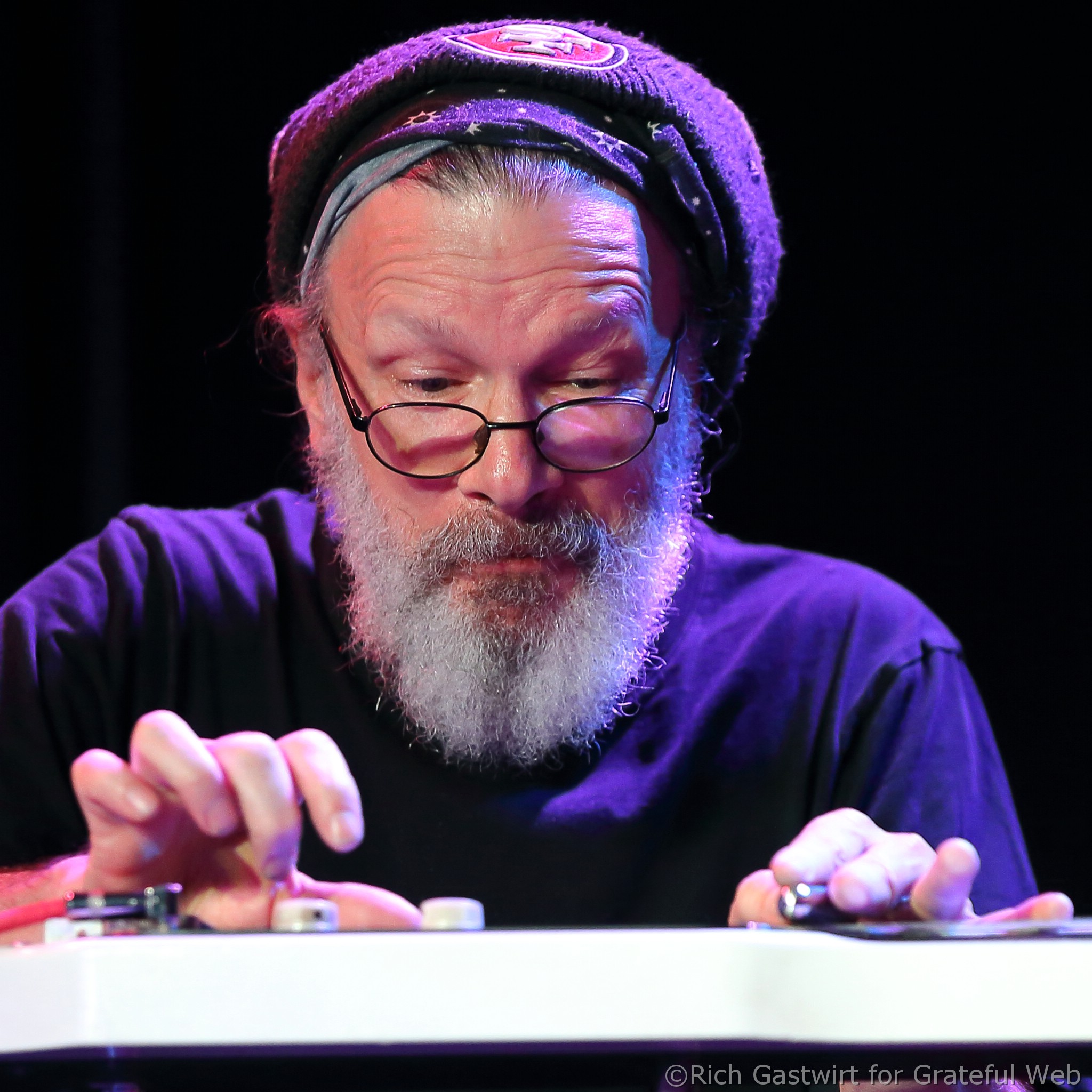
Steve Kimock: Thank you, I intend to keep it up.
MP: Good work! I'm loving the beard, did you cut it or are we going to see you in a full-fledged beard out here?
Steve Kimock: Every couple of weeks when I get in front of the mirror, accidentally, because I really do not like the mirror, and go, 'Good Lawrd!'
MP: Me too!
Steve Kimock: I’ll take scissors and I'll take a little snip over here, a little snip over there and go, is that better?! I don't know. It's still there. When stuff shut down, I was like, all right, screw it, I'm growing a beard and I'm going to shave it off when they finally get a vaccine for this crap. And then they got a vaccine and nobody took it. I was like no! That's not fair! Now I'm going to shave it off and everybody takes the vaccine.
MP: No shave November is now turned into a no-shave vaccine. No vaccine.
Steve Kimock: Sorry!
MP: Sorry. Oh, I like that. Well, that's your visual component. Hey, if you don't like it, you better do what you got to do.
Steve Kimock: Yeah. You don't like it, get the shot.
MP: Yeah, maybe two. Maybe a booster. Then I'll shave my head. Oh, man. Well, this has been really fun, Steve. I hope you're excited to come to the Windy City. We're very excited to have you here,
Steve Kimock: And I am just super looking forward to it because I've had some great really unique musical experiences in Chicago. I really feel like this is going to be another one. I'm looking forward to it. I'm looking forward to the travel and I'm looking forward to the timing of it, particularly insofar as it will be a release for the whole band from the support role, which I love because I love the Hot Tuna guys, but we'll be ready to throw down when we get there.
MP: That's awesome. There's nothing like having a really good experience right before that and being on the side, not the main event, but now you get to take over the room.
Steve Kimock: It's like taking the ankle weights off!
MP: Now go swim, you're going to love it! City Winery is such a beautiful place. It's so intimate. So hopefully we'll get a little commentary as well and maybe even hear about some of the musical experiences you've had here in Chicago. I think that's pretty awesome to have in your back pocket. I'm looking forward to seeing John on the drums. I think that's a really cool Father-Son thing. Keep up the good work with being a good father and taking care of your kids. It's a good thing. We're happy to see you guys in action. So that is the 10th that's coming up real quick. Friday, December 10th at 8 pm. We'll see you there at City Winery.
Steve Kimock: Be there or be square. As we used to say!
MP: We really appreciate it, and I will come and say hello if I make it out to the show.
Steve Kimock: Ok, you better!
MP: I will, for sure. I can't not!!





